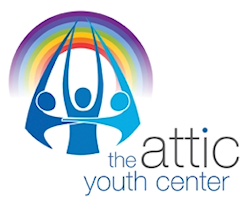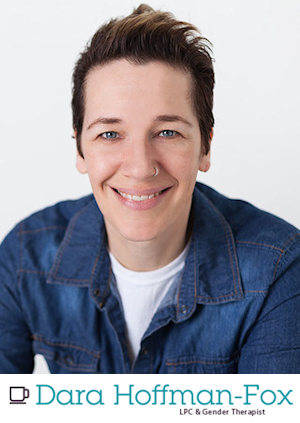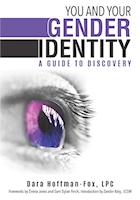Tag Archives:gender
The Effect of "Power Posing" Likely Depends on Context and Our Thoughts share
 I had mentioned Amy Cuddy’s work about power posing to a similarly scientifically-minded person recently and, after doing some reading on their own, they brought to my attention a blog article posted on the Scientific American website, The Dark Side of Power Posing: Cape or Kyrptonite, by Jay Van Bavel (11/212013). It took a look at Amy Cuddy’s work about ‘power posing’ and then pulled in some other relevant research findings. Basically, research suggests that there are traits within us and within our environment that affect whether power posing is helpful or makes things worse. One study found that, if you are a person who struggles with a lot of negative self-talk, power posing can actually have the opposite effect and decrease self-confidence. Other studies suggest that power posing can also be used to increase the likelihood of us doing things that amount to an abuse of power, such as: steal; cheat; or break traffic rules.
I had mentioned Amy Cuddy’s work about power posing to a similarly scientifically-minded person recently and, after doing some reading on their own, they brought to my attention a blog article posted on the Scientific American website, The Dark Side of Power Posing: Cape or Kyrptonite, by Jay Van Bavel (11/212013). It took a look at Amy Cuddy’s work about ‘power posing’ and then pulled in some other relevant research findings. Basically, research suggests that there are traits within us and within our environment that affect whether power posing is helpful or makes things worse. One study found that, if you are a person who struggles with a lot of negative self-talk, power posing can actually have the opposite effect and decrease self-confidence. Other studies suggest that power posing can also be used to increase the likelihood of us doing things that amount to an abuse of power, such as: steal; cheat; or break traffic rules.
I found Van Bavel’s article very interesting because, after I learned about Cuddy’s work, I had been curious about how it connects to the scientific research about the power of positive mental imagery. Research in the area of sports psychology has found a significant connection between athletes mentally rehearsing their craft and improvement in their ability to perform the tasks their sport requires. And trauma research has revealed that healing can take place when we re-imagine a traumatic event and role-play ourselves as powerful and able keep ourselves safe. So, after learning about how power posing affected body chemistry, I had wondered if simply imagining a power pose could shift body chemistry as well.
Because Van Bevel’s ‘Dark Side’ article is generally talking about the importance of our thoughts when we strike a pose, that what we are thinking affects whether we can use poser posing for ‘good’ or for ‘evil,’ it leads me to suspect that our body chemistry does change when we imagine ourselves doing a power pose. Hopefully, a researcher will take a look at that in the near future. More importantly, though, the notion that our thoughts can influence whether a power pose is a good thing, suggests to me that pairing the power pose with positive self-talk is critical so that we can increase the likelihood of using our power for the good of ourselves and for society in general. The next time you are doing your Wonder Woman pose before your next job interview, I would suggest that you are also imagining yourself speaking to the interviewer in a confident and personable way.
TED Talk: Your Body Language Shapes Who You Are presented by Amy Cuddy, PhD (video) share
Using research science to back up her ideas (in a very NOT boring, sciency way) Amy Cuddy tells us how a simple thing like our posture affects us (our body chemistry and how we perceive ourselves) and other’s perceptions about us. Increasing how mindful we are about our body language, can impact things ranging from job success to that special person saying, “Yes!” when you ask them out for the first time. Through pictures, contemporary media clips, and interactions with her audience, Dr. Cuddy demonstrates what she has learned from her colleagues’ research and her own in a way that is easy to understand and entertaining to watch. I guarantee you’ll be sitting up straighter by the end of the video!
ADDENDUM (March ’16): The Effect of “Power Posing” Likely Depends on Context
Attic Youth Center share
 Don’t be fooled by it’s title, the Attic Youth Center, offers so much more than just a place for LGBTQIA+ youth to hang out. I even love the backstory of this place. It was originally started as an eight-week program, by two graduate students back in 1993. Hosted in the attic of a building, the kids wouldn’t let it end. Since that time, it has grown to being a significant resource for area youth.
Don’t be fooled by it’s title, the Attic Youth Center, offers so much more than just a place for LGBTQIA+ youth to hang out. I even love the backstory of this place. It was originally started as an eight-week program, by two graduate students back in 1993. Hosted in the attic of a building, the kids wouldn’t let it end. Since that time, it has grown to being a significant resource for area youth.
I think what I love about it the most is that the heart of this organization is to help kids to grow as citizens who are engaged in the world around them and have a voice. So, not only are there support groups, counseling, case management, healthy choices education, and life skills opportunities, the kids work on community projects together with opportunities for leadership roles. Plus, the website has inspirational stories and lists of resources.
And, as if that’s not enough, the Bryson Institute offers various trainings regarding current “best practices” for working with LGBTQIA+ youth. You can contact them, explain the intended audience and needs, and they can customize a training for your organization. Clearly, this organization is worth checking out!
Dara Hoffman-Fox, LPC share
 Dara Hoffman-Fox, LPC is a therapist that specializes in transgender issues. Tons of quality information here. Plus, Dara a series of videos where they speak to the viewer who is trans, agender, nonbinary or questioning their gender identity, and provides some guidance as to how to think through the things you may be feeling/experiencing. They also have an e-newsletter that you can sign up for.
Dara Hoffman-Fox, LPC is a therapist that specializes in transgender issues. Tons of quality information here. Plus, Dara a series of videos where they speak to the viewer who is trans, agender, nonbinary or questioning their gender identity, and provides some guidance as to how to think through the things you may be feeling/experiencing. They also have an e-newsletter that you can sign up for.
 One specific resource that I came across on their site is their “My Coming Out Master Plan” with accompanying YouTube video. It’s a worksheet that helps you to think through and plan for how you would like to come out to family and friends. A version of that and many more resources like it are in Dara’s book, “You and Your Gender Identity: A Guide to Discovery.” I highly recommend that you pick-up a copy.
One specific resource that I came across on their site is their “My Coming Out Master Plan” with accompanying YouTube video. It’s a worksheet that helps you to think through and plan for how you would like to come out to family and friends. A version of that and many more resources like it are in Dara’s book, “You and Your Gender Identity: A Guide to Discovery.” I highly recommend that you pick-up a copy.




